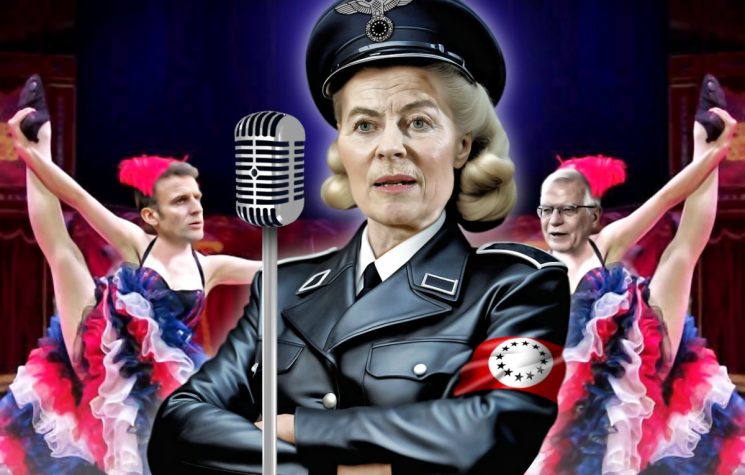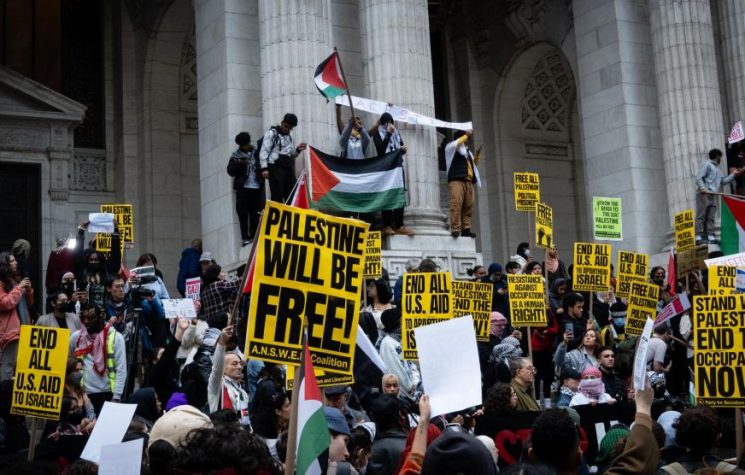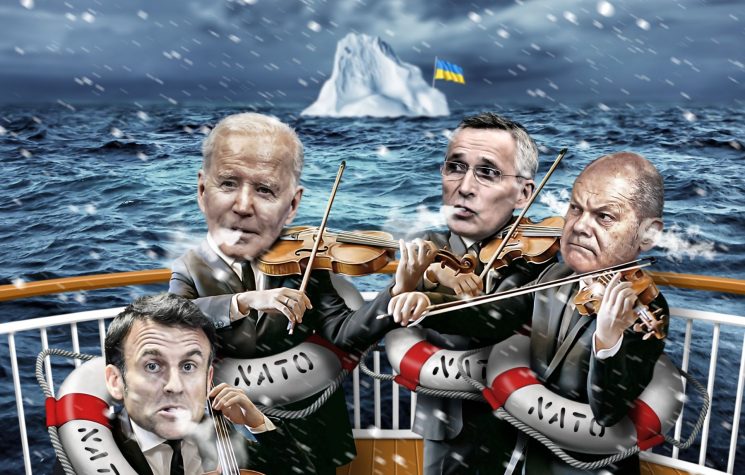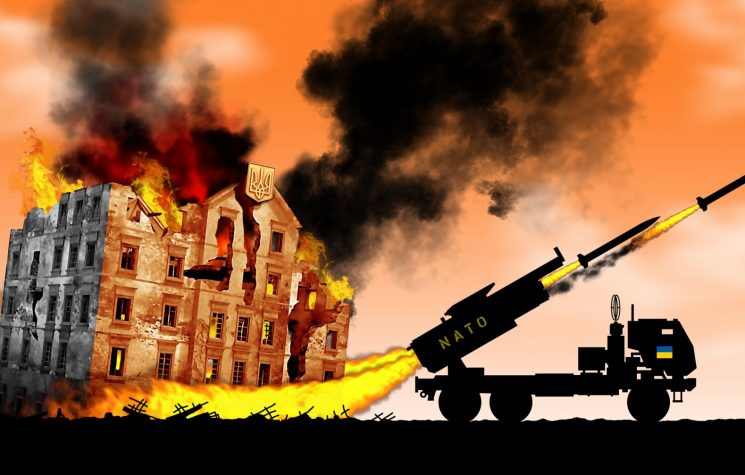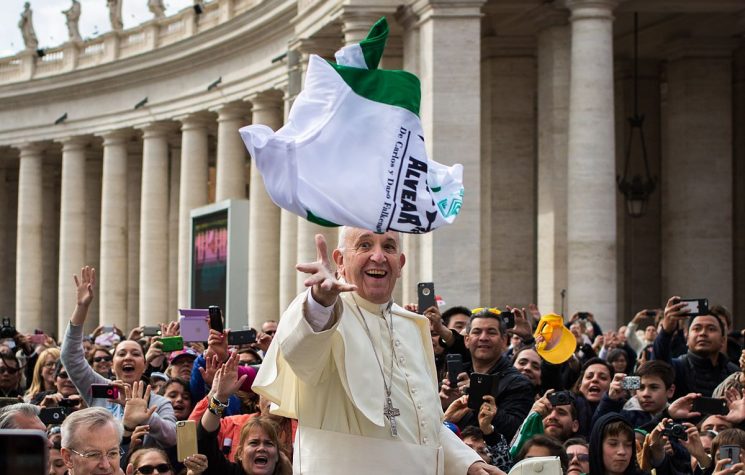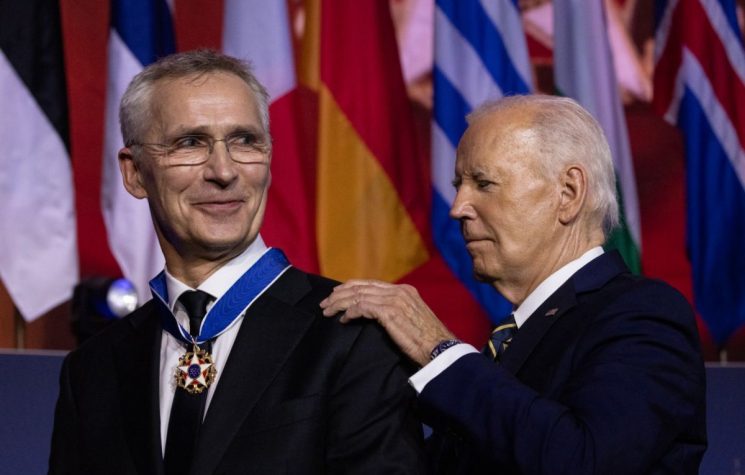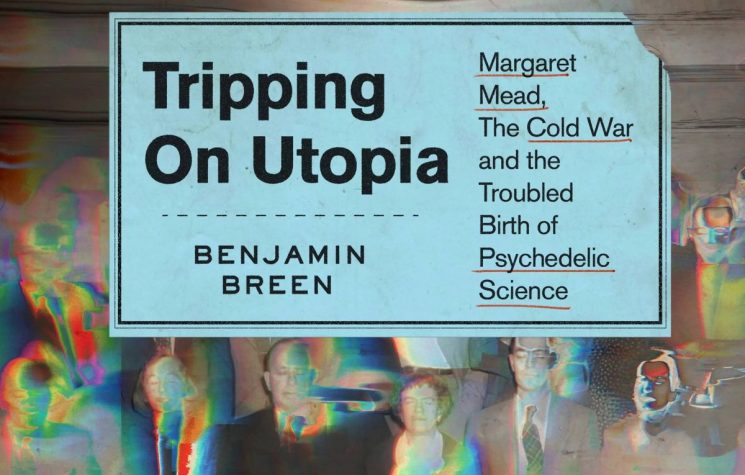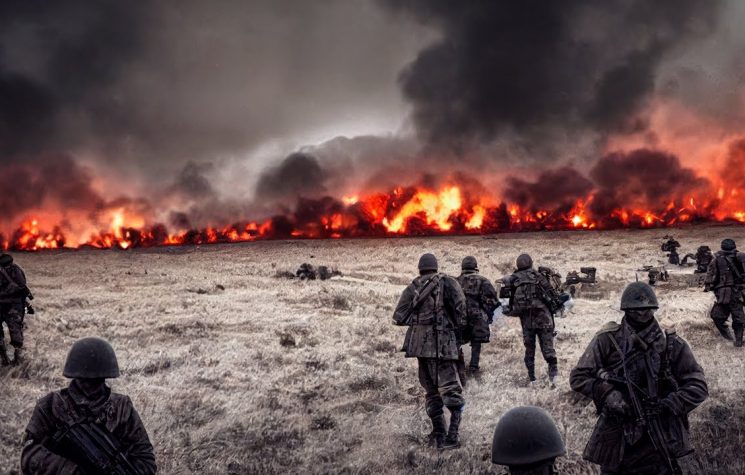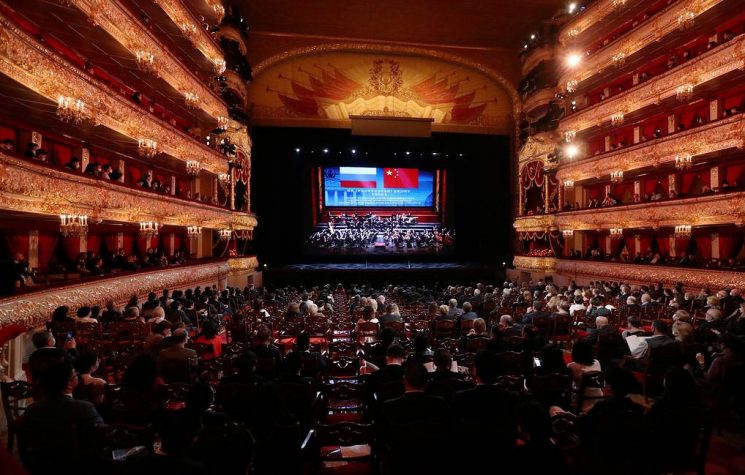We seem headed for a point of impact, with the prospect of collision in full view – and one as obvious as it was in 1911.
❗️Join us on Telegram, Twitter, and VK.
Michael Anton, a former U.S. Presidential National Security Adviser, gives us this analogy for the U.S.’ and Europe’s situation today:
“On Sept. 20, 1911, the RMS Olympic—sistership of the ill-fated Titanic—collided with the Royal Navy cruiser HMS Hawke, despite both vessels traveling at low speeds, in visual contact with one another – for 80 minutes. “It was,” writes maritime historian John Maxtone-Graham, “one of those incredible convergences, in full daylight on a calm sea within sight of land, where two normally operated vessels steamed blithely to a point of impact – as though mesmerized””.
We too seem headed for a similar point of impact, with the prospect of collision in full view – and one as obvious as it was on that day in 1911. Equally, our ruling class is not for changing course. It must want this percussion —or else perhaps they view an Armageddon of collision as ultimately destined to provide the path to the triumph of ‘righteousness’.
Certainly, the present moment is defined darkly as one of severe economic forebodings, co-existing with a mood of political impasse. It is becoming increasingly clear to more and more people in the West that something has gone terribly wrong with the ‘Ukraine project’. Sunny predictions and projections of certain victory did not materialise, and instead, the West is facing the reality of the blood-drenched sacrifice of hundreds of thousands of Ukrainian men to their fantasy of Osiris dismembered. The West does not know what to do. It ambles around, looking lost.
The whole mess is sometimes explained as a result of a miscalculation by the western élites. The situation, however, is far worse than that: The sheer dysfunctionality and the prevalence of institutional entropy is so obvious that there is little need to say more.
The dysfunction of the West runs far deeper than just the situation around the Ukraine project. It is absolutely everywhere. Public and private institutions, especially those of the state, find it difficult to get anything done; government policies resemble hastily drawn-up wish lists, which everyone knows will have little practical effects. That is why policymakers have a new priority: ‘not losing control of the narrative’.
Hartmut Rosa’s ‘line’: Frenetic standstill seems particularly apt.
Put simply, we are gripped in a new iteration of the 1968 politics. U.S. commentator, Christopher Rufo, notes,
“It’s as though we have lived an endless recurrence: the Black Panther Party reappears as the Black Lives Matter movement; the Weather Underground pamphlets launder themselves into academic papers; the Marxist-Leninist guerrillas trade in their bandoliers and become managers of an élite-led revolution in manners and mores. The ideology and narrative has maintained its position of jealous hegemon”.
Herbert Marcuse in 1972 was premature perhaps in declaring the death of the 1968 revolution. Though even towards the end of that year, push-back was evident with voters casting their ballots for Richard Nixon, who promised to restore law and order. Well, Nixon was duly ‘removed’ – and the ideology behind 1968 gradually revived:
“Left-wing activists today have resurrected the militancy and tactics of the 1960s – radical movements are instantiated, organizing demonstrations and using the threat of violence to achieve political aims. During the summer of 2020, the Black Lives Matter movement led protests in 140 cities. Many of these demonstrations became violent—the largest eruption of left-wing race rioting since the late 1960s”, Rufo writes.
“The starting point is correctly to perceive the current state of play in America. The bitter irony of the Revolution of 1968 is that it has attained ‘office’ – but opened up no new possibilities … the Left’s seemingly wholesale capture of major institutions—public education, the universities, private-sector leadership, culture, and, increasingly, even the sciences— makes the current battlefield appear overwhelming”.
Yet rather, it “has locked major institutions of society within a suffocating orthodoxy … Though it has amassed significant administrative advantages, it has failed to deliver results”. What we have is an intense level of political and cultural polarisation co-existing with a sense of being trapped in stasis. Public life is on hold, and with ‘crisis’ as its norm, mainstream politics slips ever closer to the old European vice of nihilism.
What distinguishes – what warps – the narrative of today’s intellectual descendants of 1968 is their insistence no longer just to set and control the narrative, but to demand that the cultural war be assimilated into each individual’s personal values-set. And further, to mandate that they, as individuals, reflect that ideology in their every-day actions and language – or face cancellation. That is, full-on Culture-War.
Today’s master-signifiers of ‘systemic racism’ and ‘white privilege’, coupled with today’s identity rights, diversity and transgenderism, is splitting the U.S. between two identity norms: Those of ‘The Republic’, that of the 1776 Revolution, versus those of the 1968 Revolution.
In Europe, there is deep schizophrenia too: On the one hand, the Davos elite is pledged to a narrative which holds that Europe’s past has been – fundamentally – one of racist colonial supremacy. And that this requires public and private entities to offer redress for historic acts of discrimination and colonialism – a view that imposes the duty upon all Europeans: ‘to commit to diversity, the protection of identities – and to radical equity’.
But what is not acknowledged or discussed openly is the profound change which is transforming Europe: Like it, or not, Europe is not what we have imagined it to be. It is not the Europe of French ‘Paris’, Italian ‘Rome’ or British ‘London’.
That continues – and is commercially exploited – as an useful ‘tourist vision’ of Europe. The reality however, is that Europe is fast becoming a land where the native-born are headed to being a minority amongst minorities: What is ‘France’ today is a valid, but unanswered question.
Many may say, well ‘why not’? But starkly put: the problem is that this outcome is deliberately being pursued – clandestinely; with no honesty – and with no consultation. Europeans who have experienced earlier cycles of conquest (whether by Mongols, Turks or Austrians) and survived through sustaining an enduring sense of identity, see the latter being purposefully de-stabilised and their culture dissolved – to be replaced by the bland public-relations language of European values, espoused by Brussels.
Whether this shift is a ‘good thing’ or a ‘bad thing’ is not the point. For, bluntly put, this issue is set to blow Europe apart as its economy crumbles, and as the huge resources devoted to migrants becomes a burning topic. What no one knows is how to stabilise a sense of European identity out of the identity soup that Europe has become.
In fact, a ‘solution’ maybe not be possible – given the endless harping on ‘white’ racial crime. Whether valid, or not, it has segued into a ‘witches’ brew’ of hatreds. We saw the effects in Paris, and in other French cities over this summer.
The principles of much of European society are not oriented toward any exalted, world-shaping ‘social engineering’ project of moral redress, but toward the protection of the simple values and institutions of the common citizen: family, faith, work, community, country.
This is Europe’s ‘culture war’ – America’s is related but has its own characteristics.
Charles Lipson writing in the (U.S. edition of) The Spectator says:
“It’s hard not to weep for the Republic as trust in our institutions collapses — and collapses for good reasons. Put simply: our national governance is in shambles — and the public knows it. They know, too, that problems go beyond partisan politics and specific leaders to include their enablers, the media and core institutions of law enforcement”.
“What they don’t know, is how to restore some semblance of integrity to a political system that makes it very hard to block the hold on the nomination of a sitting president, like Joe Biden, or the nomination of another candidate, like Donald Trump, who is backed by a strongly committed minority of party activists”.
The Permanent State has made it clear, Michael Anton, writes,
“[T]hat they can’t, and won’t, if they can help it, allow Donald Trump to be president again. In fact, they made this clear in 2020, in a series of public statements. If they felt that strongly back then, imagine how they feel now. But you don’t have to imagine: They tell you every day. They say that the 45th president is literally the greatest threat facing America today — greater than China, than our crashing economy, than our unravelling civil society”.
Well, that ‘Trump base’ to which Lipson refers is not budging. Not only that, it is not just a ‘Trump base’ – for it is acquiring wider support as today’s counter-revolution is not one of Trumpism alone; or of class vs class; but rather one which “takes place along a new axis between the citizen versus an ideologically-driven state”. Glenn Greenwald concurs,
“The relevant metric now isn’t left versus right. It’s anti-establishment versus pro-establishment”.
The ultimate ambition is not to replace the new “universal class” – the heirs of the 1960s cultural revolution; rather, it seeks to restore the nation’s founding principle of ‘citizen rule vs The State’, which was the basis to the American Revolution of 1776.
That ‘base’ effectively is not budging because, in the final analysis, anti-Trump hysteria is not about Trump – as Michael Anton, himself a former White House staffer, argues:
“The regime can’t allow Trump to be President not because of who he is (although that grates), but because of who his followers are”.
“Complaints about the nature of Trump are just proxies for objections to the nature of his base”.
That class cannot be allowed to implement their preferences, because of the nature of who they are; and mostly, because it is their nature that dictates what they want to see happen, Anton adds.
The ruling class, Anton writes, will surely consolidate ‘the base’ –
“[T]hrough being ever-more radical, hateful, and incompetent. They have shown time and again that there is no moderation in them. They can’t let up even a single mile per hour, not even when easing back is in their clear interest. Whether they are driven by the demands of their base, their own internal conviction, or some supernatural force, I couldn’t say”.
“What happens then? Well, in the words of the “Transition Integrity Project,” a Soros-network-linked collective, who in 2020 gamed out their strategy for preventing a Trump second term, the contest [ultimately] would become “a street fight – and not a legal battle.” Again, ‘their words’, not mine. But allow me [Michael Anton] to translate [what this] says: [We may expect a repetition of] the 2020 summer riots, but in orders of magnitude larger: And not to be called off, until their people are secure in the White House”.
Will people weep for the West? No …










